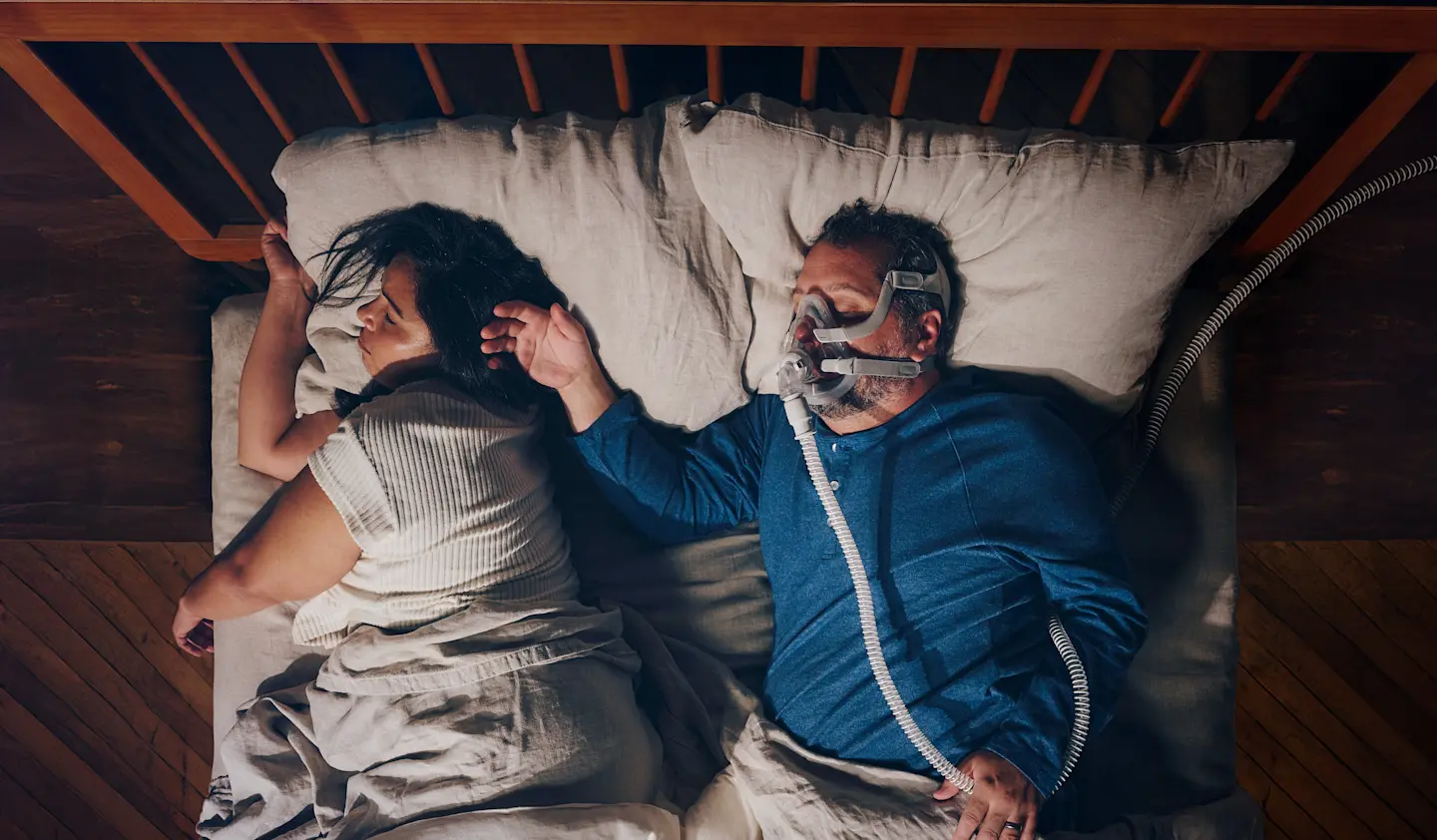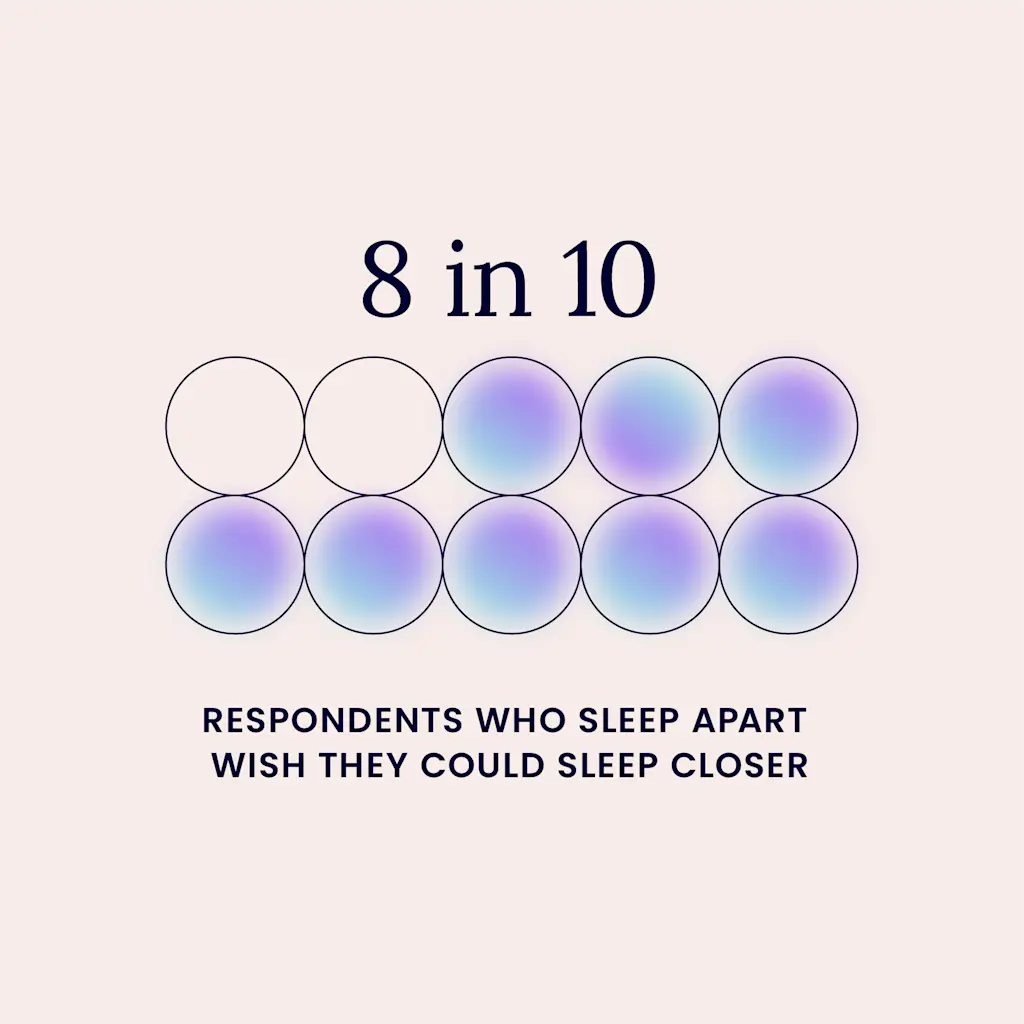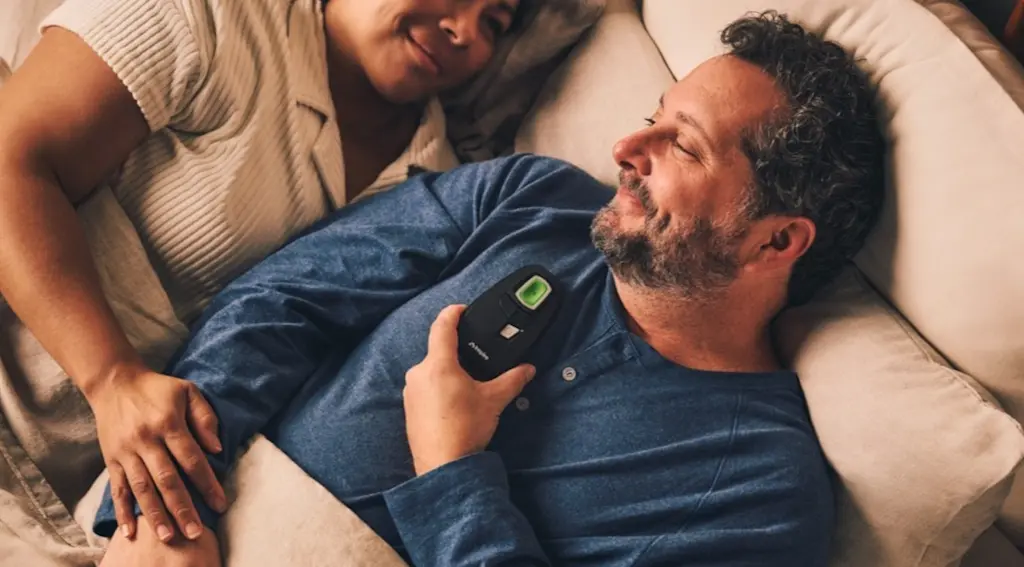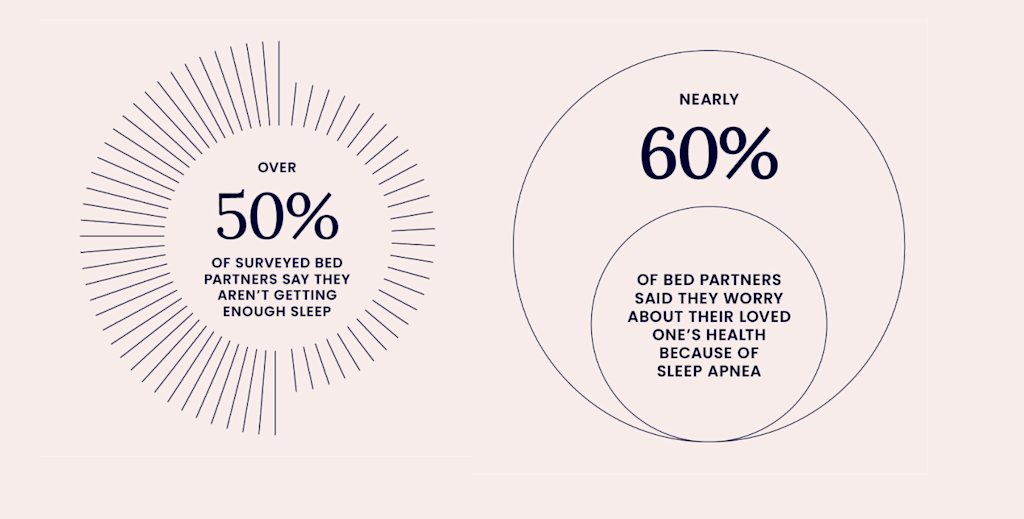Secondhand sleep apnea: the struggle is real
Individual results may vary. Rx Only. View important safety information at inspiresleep.com/safety.

New survey results reveal how bed partners are impacted by the ripple effect of sleep apnea.
Is sleep apnea keeping you both awake?
If you share a bed with someone diagnosed with sleep apnea, you may have felt that restless, not-so-refreshing kind of night that leaves you just as tired as they are.
Even if you don’t have sleep apnea yourself, your partner’s sleep apnea could be impacting your sleep. A recent survey conducted by Inspire Medical Systems, Inc. discovered the impact of sleep apnea on bed partners.
One person is struggling to breathe and sleep at night, and the other person in bed often struggles to rest alongside them. And while most conversations focus on treating the person with sleep apnea, your sleep is also important.
Sleeping apart is an option, but, for many, not the ideal one
Sometimes, sleep becomes so disrupted that couples end up in separate bedrooms, often referred to as ‘sleep divorce’. And while that might sound like a practical fix, most surveyed partners said this is not what they want.
In fact, 8 in 10 surveyed couples who sleep apart due to sleep apnea symptoms say they wish they could share a bed again.
Sleep means more than just rest to partners. It’s about comfort, closeness and connection. When one person is dealing with sleep apnea, it may put unexpected distance between them – physically and emotionally.

When one person has sleep apnea, both can lose sleep
Sleep apnea might only be diagnosed in one person, but it can affect the sleep and overall well-being of both people in bed. Many patients turn to Continuous Positive Airway Pressure (CPAP) machines for treatment, but CPAP isn't always the right fit for managing symptoms. This may cause issues for the partner lying beside them as well.
Inspire® therapy may offer a different kind of solution. It’s a small, implanted device placed under the skin that works with the body's natural breathing to keep the airway open during sleep, without a mask, hose or external machine. Of respondents whose bed partners have a surgical implant like Inspire therapy, 9 in 10 said they do not sleep poorly.
And better rest might lead to better mornings, better moods and stronger relationships.
What can you do if you’re a bed partner?
If you think your loved one might have sleep apnea, or if they’ve been diagnosed but traditional treatments aren’t working, there’s a simple next step you can take together.
Encourage them to take our short quiz below to see if Inspire therapy might be a fit.
Because better sleep1 for them could mean better sleep for you, too.
These results were not part of a formal clinical trial. The findings are from a survey conducted by BarkleyOKRP on behalf of Inspire Medical Systems, Inc., and sent to a random sample of n=1,000 bed partners of individuals diagnosed with sleep apnea.

See if you qualify.
Take a few minutes and find out if you qualify for Inspire® therapy.
Fill out the questionnaire and get your results immediately.
Have you been diagnosed with obstructive sleep apnea (OSA)?
This questionnaire will ask for personal and health-related information. View our privacy policy.
